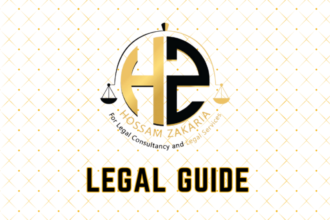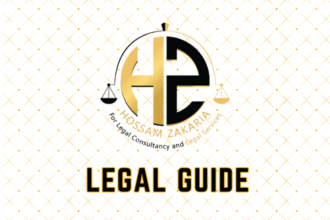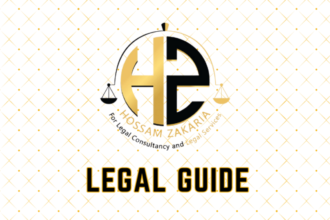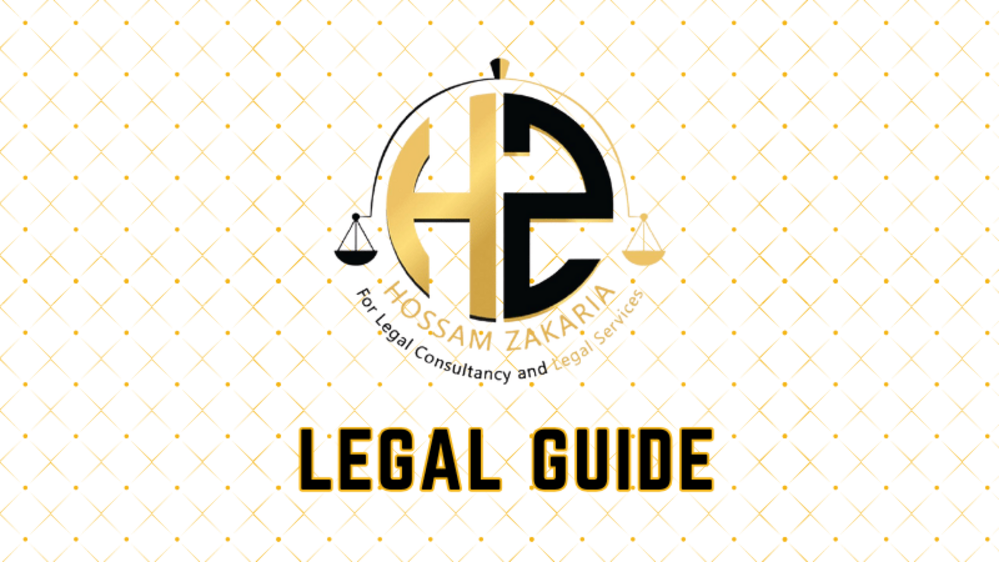Introduction
The increasing global regulatory emphasis on anti-money laundering (AML), counter-terrorism financing (CTF), and sanctions compliance has created an era of unprecedented complexity for financial institutions. Nowhere is this more acute than at the intersection between Saudi Arabian banks and the United Arab Emirates, where cross-border banking operations must navigate a swiftly evolving landscape of local and international compliance obligations. With the UAE’s ongoing efforts to cement its position as a global financial hub—including significant 2024 and 2025 updates to its legal framework—mastering sanctions screening and risk management is no longer optional for institutions operating in or interfacing with the Kingdom of Saudi Arabia (KSA). Recent legal reforms, new Federal Decree-Laws, and Cabinet Resolutions underlining the national AML/CTF regime reinforce the urgency for banks to recalibrate their compliance strategies.
This consultancy-grade article provides a comprehensive and practical analysis of sanctions screening and risk management best practices for Saudi banks with exposure to the UAE. Drawing on official sources—including UAE Federal Decree-Law No. 20 of 2018 on Anti-Money Laundering and Combating the Financing of Terrorism and Illegal Organisations, Cabinet Resolution No. 10 of 2019, and subsequent ministerial guidelines—this resource is designed to help C-suite executives, compliance officers, HR managers, and legal professionals confidently navigate the latest regulations. Insightful comparisons with previous rules, authoritative consultancy recommendations, penalty analysis, and actionable compliance checklists ensure this article functions as both a legal briefing and a practical roadmap for mastering UAE compliance in 2025 and beyond.
Table of Contents
- The Cross-Border Compliance Context between KSA and UAE
- Overview of UAE Sanctions and AML/CTF Legal Framework in 2025
- Key Legal Updates Impacting Sanctions Screening and Risk Management
- Detailed Breakdown of Provisions and Requirements
- Comparison between Old and New UAE Laws
- Case Studies and Hypothetical Scenarios
- Risks of Non-Compliance for Saudi Banks Working with the UAE
- Practical Compliance Strategies for 2025
- Suggested Visuals and Compliance Tools
- Conclusion and Proactive Steps Forward
The Cross-Border Compliance Context between KSA and UAE
Increasing Regulatory Convergence
The GCC has witnessed an unprecedented harmonization of financial crime compliance standards, driven largely by regional and international bodies such as the Financial Action Task Force (FATF). UAE, often seen as the regional leader in regulatory agility, has implemented sweeping reforms in AML/CTF and sanctions enforcement, affecting not only domestic institutions but also foreign financial entities—especially those in KSA—that engage in cross-border operations, correspondent banking, or funds transmission involving UAE persons or businesses.
Why Saudi and UAE Banks Must Align Their Approaches
KSA’s Vision 2030 and the UAE’s drive toward global compliance standards mean Saudi banks serving clients or conducting transactions that touch the UAE are under heightened scrutiny. Central Bank of the UAE (CBUAE) and Saudi Central Bank (SAMA) both require robust controls, but disparities in national approaches can expose institutions to regulatory friction, civil and criminal penalties, and reputational risks. Thus, seamless coordination and understanding of each jurisdiction’s requirements is essential in 2025.
Overview of UAE Sanctions and AML/CTF Legal Framework in 2025
The Pillars of UAE’s Sanctions Regime
Sanctions screening in the UAE is strictly governed by a constellation of laws and regulations, the most notable of which are:
- Federal Decree-Law No. 20 of 2018 (and amendments): the cornerstone anti-money laundering and CTF statute.
- Cabinet Resolution No. 10 of 2019: Executive regulations for Federal Decree-Law No. 20.
- Ministerial Guideline No. 50 of 2020 (and later updates): Detailing sector-specific screening obligations.
- Lists maintained by the UAE Ministry of Justice and the Committee for Goods and Materials Subject to Import and Export Control.
These sources are regularly updated to cover new threats, evolving guidance, and expanding lists of United Nations, EU, US, and UAE-specific sanctions targets. Notably, the UAE’s commitment to international standards ensures its regime remains fluid and reactive.
Enhanced Due Diligence and Screening
Banks operating with any direct or indirect UAE exposure must conduct dynamic, risk-based sanctions screening:
- Pre-onboarding and at regular intervals for clients, counterparties, and transactions
- Real-time filtering of payments against up-to-date UN/UAE/EU/US-sanctions lists
- Beneficial ownership verification in line with Cabinet Resolution No. 58 of 2020 On the Regulation of Beneficial Owner Procedures
Key Legal Updates Impacting Sanctions Screening and Risk Management
UAE Law 2025 Updates: From 2024 Into 2025
The UAE has issued numerous critical updates in the past two years that directly affect banking compliance:
- Explicit requirements for the use of advanced technologies (AI-enhanced screening tools)
- Expansion of the Designated Non-Financial Businesses and Professions (DNFBPs) oversight, increasing interfaces for Saudi banks that service these segments
- More severe civil and criminal penalties for sanctions breaches
- Mandated cross-notification with SAMA and instant reporting to the UAE Financial Intelligence Unit (FIU) for suspicious activity touching UAE entities
Official Legal Source References
- UAE Ministry of Justice
- Cabinet Resolutions
- Federal Legal Gazette
- UAE Government Portal
- Ministry of Human Resources and Emiratisation
Implications for Saudi Banks
Saudi banks serving UAE-related entities must immediately evaluate their controls in light of these changes. Deficiencies in any aspect of the legal update may not only trigger penalties in the UAE but could initiate cross-border enforcement action. Seamless legal interpretations and robust documentation are critical.
Detailed Breakdown of Provisions and Requirements
Sanctions Screening Mechanisms Mandated by UAE Law
- Customer Due Diligence (CDD): Enhanced identity and risk profiling at onboarding and throughout the business relationship as mandated by Decree-Law No. 20/2018 Art. 10.
- Name Filtering: Realtime screening against all applicable sanctions lists (UN, UAE, US, EU, and proprietary) with immediate escalation procedures.
- Beneficial Ownership Disclosure: In compliance with Cabinet Resolution No. 58/2020, requiring clear group structure clarifications and registry cross-checks.
- Transaction Monitoring: Ongoing monitoring of transactional patterns and cross-border fund movements for illicit activity or sanctions violations.
- Reporting Obligations: Mandatory urgent reporting to the FIU for any positive hit or suspicion; parallel disclosures to SAMA if the institution is Saudi-domiciled but UAE-exposed.
Technology and Recordkeeping
Updated laws now mandate the use of state-of-the-art technology capable of not only filtering but accurately risk ranking matches, maintaining comprehensive audit trails, and allowing ex-post regulatory review as per Cabinet Resolution No. 74 of 2020.
Organisational Responsibilities
- Board-level oversight: Board members are now explicitly required to approve and periodically review sanctions and AML/CTF policies.
- Training and Awareness: Annual sector-relevant training is compulsory for all staff (including senior management) with documentation as stipulated by Ministerial Guideline No. 50/2020.
- Periodic Independent Audits: Firms must arrange for third-party audits to check for effectiveness and regulatory conformity, especially concerning cross-border exposure (as reinforced in Cabinet Resolution No. 10/2019, Art. 18).
Comparison between Old and New UAE Laws
The table below provides a detailed comparison of selected key aspects before and after the 2024-2025 legal updates relevant to Saudi banking operations with UAE cross-border exposure:
| Aspect | Pre-2024 Regime | 2024/2025 Updates |
|---|---|---|
| Scope of Sanctions Lists | Primarily UN and local lists | Expanded to include US, EU and any international entity impacting the UAE |
| Mandatory Use of Technology | Permissive; encouraged use of basic tools | Compulsory use of advanced AI-based, real-time screening tools |
| Reporting Duties | Reporting to FIU on a periodic basis | Immediate and parallel notification to FIU and SAMA for UAE-Saudi cases |
| Penalties | Fines and administrative measures | Significantly higher fines, potential board member liability, criminal prosecution |
| Training Requirements | Ad hoc; sector-based | Annual, role-based, and certified with documentation |
| Audit and Review | Occasional, sometimes internal only | Mandatory third-party audits; regulator can order ad hoc reviews |
Case Studies and Hypothetical Scenarios
Case Study 1: Missed Sanctions Hit in a Trade Finance Transaction
A major Saudi bank processes a large UAE-bound trade finance operation. The automated sanctions filter flags an entity as a possible match to a UAE Ministry of Justice blacklist, but the compliance officer, lacking recent training, discounts the alert as a false positive. The operation proceeds, resulting in a post facto regulatory inquiry and a substantial fine under Federal Decree-Law No. 20/2018 and Cabinet Resolution No. 10/2019. Not only does the bank face financial penalties, but handling officers, including the risk manager and branch head, are subject to disciplinary review under the upgraded regime.
Case Study 2: Inadequate Beneficial Owner Screening
A KSA-based bank serving a major UAE corporate fails to update its documentation procedures following UAE Cabinet Resolution No. 58/2020. When a complex fund movement draws regulatory scrutiny, the inability to correctly identify the beneficial owner is treated as a material breach—exposing the bank to civil penalties, reputational risk, and the potential for cross-jurisdictional enforcement action.
Risks of Non-Compliance for Saudi Banks Working with the UAE
Risks are intensifying due to expanded enforcement powers and international cooperation:
- Civil and Criminal Liabilities: Fines ranging from AED 50,000 up to AED 50 million per incident; possible imprisonment of responsible persons.
- Reputational Harm: Published penalties, enhanced scrutiny, potential loss of corresponding account relationships.
- Operational Impact: Freeze or suspension of upstream, downstream, or cross-border activities affecting the bank’s UAE-bound business.
- Regulatory Blacklisting: Severe or repeated breaches can result in formal blacklisting on UAE, KSA, and international platforms, severely restricting future operations.
Practical Compliance Strategies for 2025
Consultancy-Grade Recommendations
- Conduct a Legal Gap Analysis: Evaluate all policies, toolsets, and procedures against the latest UAE legal updates, referencing authoritative sources such as Federal Legal Gazette, Cabinet Resolutions, and Ministerial Guidelines.
- Upgrade Screening Technology: Implement or upgrade to AI-enhanced, real-time sanctions and transaction monitoring platforms capable of handling all required list sources and recording all audit trails.
- Board Involvement and Policy Cascade: Secure board-level approval and oversight for all AML/CTF and sanctions-related policies; ensure robust cascade to all relevant business units and cross-border offices.
- Mandatory Training: Develop certified, UAE-specific training modules for staff at all levels, with particular focus on front-line compliance team and executives handling cross-border flows. Keep thorough records for regulatory inspection.
- Enhanced Due Diligence (EDD): For all relationships with UAE persons, entities, or touchpoints, apply EDD measures and document every escalation, check, and risk acceptance decision.
- Periodic Third-Party Audit: Schedule external reviews by accredited firms to ensure procedures, technology, and human factors meet or exceed UAE mandates.
- Legal Opinion and Cross-Jurisdictional Coordination: Where unsure, secure written legal advice from qualified UAE practitioners and develop a standard protocol for notifying both UAE and KSA regulators in the event of incidents.
Suggested Visuals and Compliance Tools
- Penalty Comparison Chart: Illustrating the scale of penalties under old and new regimes
- Process Flow Diagram: Mapping sanctions screening from onboarding to transaction review and escalation in a Saudi-UAE context
- Compliance Checklist Table: For at-a-glance assessment of readiness versus UAE requirements
Conclusion and Proactive Steps Forward
UAE’s 2025 legal and regulatory updates have transformed the landscape of sanctions screening and risk management for Saudi banks serving or interfacing with UAE entities. With intensifying scrutiny from both SAMA and CBUAE, the cost of failing to master compliance is steeper than ever. Boards and senior executives must now treat sanctions compliance as a strategic, organization-wide priority—one supported by advanced technology, robust procedures, regular training, and cross-border legal expertise.
As the UAE continues to assert its leadership in global finance, the legal environment will grow only more sophisticated. Forward-thinking financial institutions should treat compliance not as a check-the-box exercise, but as an active enabler of trust and sustainable business growth in the GCC and beyond. By adopting a consultancy-grade, holistic approach—rooted in continuous vigilance, independent audit, and executive commitment—organizations will not only secure their place in the evolving regulatory order but build the operational resilience needed for success in the years ahead.



